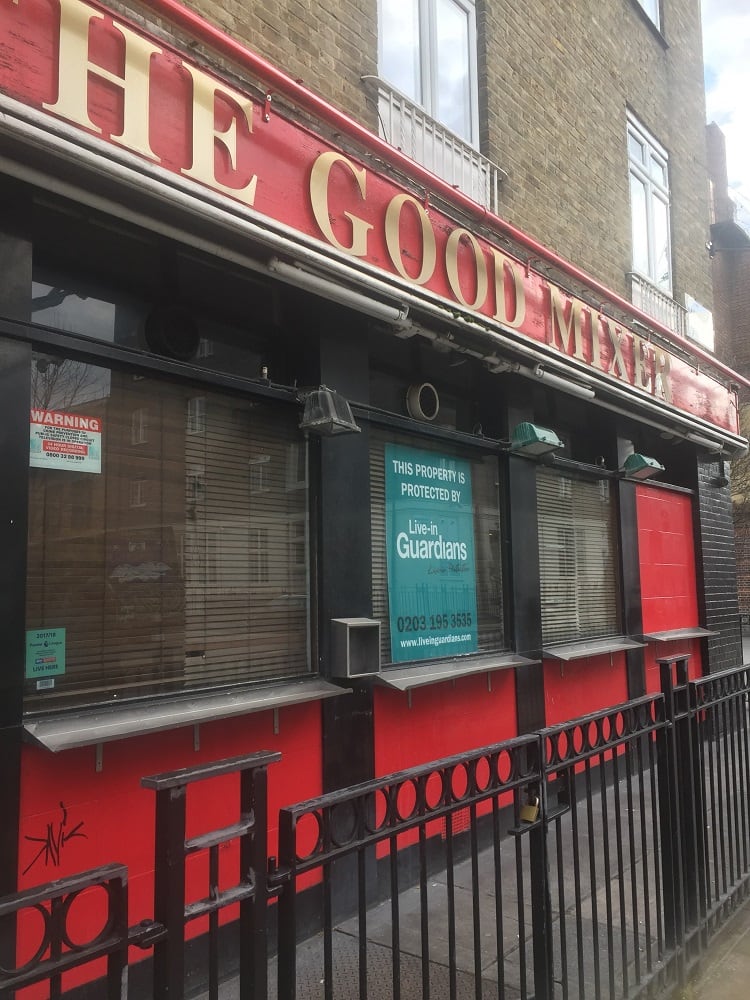As reported by The Morning Advertiser, 18 pubs a week are closing a week due to a ‘triple whammy’ of high beer duty, rising VAT and business rates.
According to the Campaign for Real Ale (CAMRA), the average pub pays £140,000 in direct taxes every year, with many publicans forced to call last orders on their business.
However, according to Gov.uk, owners of empty properties are required to pay business rates after their building has been vacant for three months.
Allowing a property guardian to live in an empty venue is becoming an increasingly popular solution to continued business rate payments. The empty pub’s status becomes temporarily residential for rating purposes and council tax is payable instead of business rates.
At no cost to the owners, vacant property protection specialists Live-in Guardians has saved property owners in excess of £7m in the past five years alone in business rates, as well as securing them against squatters. In 2014, 20,000 commercial buildings in central London were occupied by squatters.
Financial uncertainty
Arthur Duke established Live-in Guardians in 2010 in order to provide a reliable and commercial solution to the problems created by empty properties. He explained: “When a pub closes down, it can be a time of financial uncertainty for the brewery or property owner."
Duke describes allowing property guardians to live in a pub while its future is decided as a “win-win situation” – with many pubs in his experience continuing to operate after a brief period occupied by a guardian.
“It claws back funds being unnecessarily spent on business rates and provides security for the building at the same time, while also making a positive contribution to the affordable housing market.
“We often hand the property back in a better state than the condition we got it in.”
Live-in Guardians currently works with 15 empty pubs – predominantly in London. Duke outlines that while a property lies empty, an on-site guardian can occupy the premises while next steps are determined at an all-inclusive rental cost to the occupant that is less that is, on average, half the market value.

Keeping a building 'alive'
While in some instances, a pub closes for good, Duke highlights that a number of occupied pubs are waiting for a change of tenants and, therefore, filling a void enforced by a non-trading clause, during which the property owners would otherwise be paying business rates.
"A client recently bought three pubs, two directly from Greene King and one was a privately owned independent, and is currently looking for tenants for the pubs. They will be reopening as trading pubs.
"There was a non-trading clause when they bought them – so they'll be closed for four months – and then down the line, they'll reopen.”
Live-in Guardians also help secure a property while it lies empty. Duke explains: "If people start looking in and see the pub empty it can be attractive to squatters. What we would generally do in the immediate period is have security guards, or a 'caretaker' just to make sure there's somebody in there in the short term.
“We would then check that the pub complies with health and safety regulations. We'd do an electrical test and get a gas safety certificate, etc.
“If you bought a pub, everyone knows it's empty, you'll get people trying to pull the boards off, get in, nick the copper and a lot of antisocial behaviour. The fact they know it's occupied – people coming, people going – people will leave it alone. It keeps the building alive.”
To find out more about pubs for sale, lease and tenancy visit our property site.
